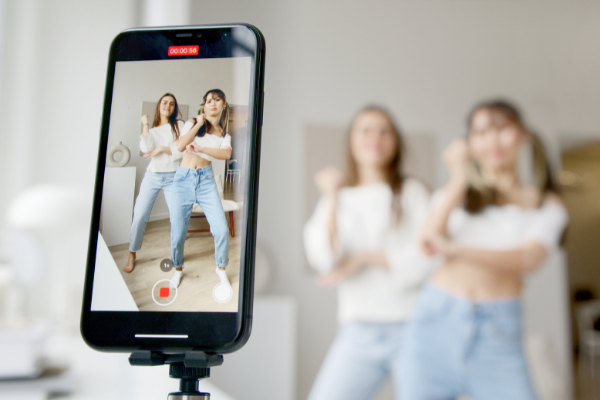The average smartphone screen time in Belgium has shot up since the start of the Covid-19 pandemic in 2020 and now stands at 188 minutes, or more than three hours, per day.
According to a study by Digimeter, which questioned around 3,000 Flemish people on their digital habits, the average screen time rose from 150 minutes to 185 minutes per day in 2020. Despite lockdowns being eased, people seem to remain hooked to their devices, De Standaard reports.
Research leader Lieven De Marez sees this as a sign that Belgian society is digitising at a faster pace: “It appears to be a lasting effect. The world is opening up again, but we remain stuck in these new habits. In doing so, we spend an extra 35 minutes per day staring at our smartphone,” she said.
Our favourite screen
Half of Flemish people prefer their smartphone over other devices or real-life services to manage money matters; for 57% it is their preferred device to listen to music; 54% use their smartphone as their primary medium for news.
53% of respondents agreed that smartphones are their most-used device; computers came second with 28%. These screens are followed by tablets, other devices and finally televisions.
Online activity has spiked with smartphones used for social media in particular. This accounts for an average of 47 minutes per day, or 25% of screen time. 28 minutes (15%) is spent on chats, while 24 minutes (13%) is spent browsing the internet.
The rest of the time is spent on video apps, games, news apps, email, and navigation, such as Google Maps.
Related News
- 4G connection in Belgian trains to improve by 2023
- Digital well-being: being healthy in a hyperconnected world
- Belgium Uncomplicated: ‘Teleworking goes hand-in-hand with wellbeing’
Online shopping has also grown in popularity as people are getting more used to online payments. In 2020, 40% of the people were concerned about the security of online payments. This dropped to 26% in 2021.
In 2020, 60% of people shopped online on a monthly basis but this trend eased in the last three months of 2021, when people again took to the streets.
New player: Tiktok
With the majority of our smartphone screentime spent on social media, social media companies are doing well. Meta, the parent company of Facebook, Messenger, Instagram and Whatsapp, profits – but not like it used to.
The Meta apps “only” account for 29% of our smartphone use, slightly less than 31% in 2020. That can be explained by the rise of Chinese video-app Tiktok, which has become increasingly popular among young people.

Tiktok is more than a social media network. Credit: Canva
Among 16–24 year-olds, only 53% use Facebook daily (compared to 67% the previous year). 62% spend time on Tiktok every day. In this age group, an average of 72 minutes is spent swiping short videos on the app, making it not only a competitor for other social media, but also for TV channels and streaming services.
Streaming outperforms TV
The first lockdown saw an increase in people watching television, but that Covid-19 trend has now been reversed. Although the older population still watches TV, only one in five young people do so on a daily basis.
Instead, streaming subscriptions have stolen the show with 55% of Flemish people now paying for a subscription service. In 49% of cases this is Netflix.
Digital attitudes
The Digimeter also investigated people’s attitudes towards technology since Covid-19: “We are generally more positive about technology, but we have also become more aware of the dangers,” De Marez says.
The main concerns are our reliance on social media (62%), fake news (74%) and the exploitation of our personal data (61%). People are more conscious about their smartphone use, with half of respondents switching off certain notifications. 60% set their smartphone to “silent” or “vibrate”.
Around two-thirds of those surveyed think that digitisation is happening too fast. “They are gasping for breath,” De Marez says. “Even for many young people, it is hard to keep up.” For instance, 18% of young people doubt whether they should use certain digital applications, out of fear of making mistakes that cannot be corrected.

